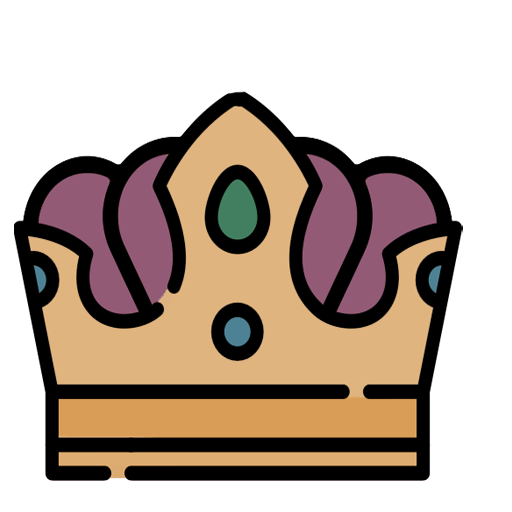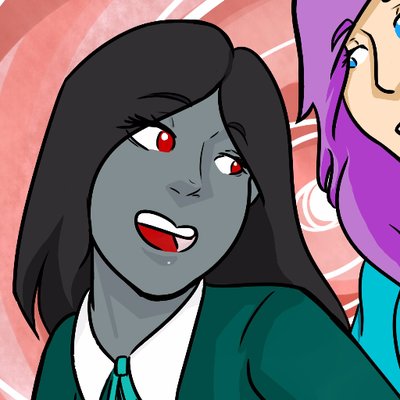By the Gods
Divinity in Saleh'Alire
Saleh'Alire » Introduction ⭲ Natural Laws
Believing that the beginning of time was far too long ago for anyone to truly know the reality of what happened, Alirans care very little about debating the hows, whys, and whens of Divine existence. They instead choose to look to the reality of the present... And the undeniable reality of the present is that several Deities do in fact exist across a multitude of cultures, times, and places. More, they are powerful and tangible beings who walk freely among the various Planes of existence. This is, in large part, due to their supreme interconnectedness with The Weave itself.
Few Tolarans care what it is or how it came to be- let alone why. But all planar denizens agree The Weave is an invisible energetic force that surrounds and permeates everything. Anyone with an inclination to do so can, with enough time, study, and and effort, learn to manipulate it for spellcasting.
Some who study it may even master it, becoming experts in one school of magic or another. But those who truly master every element of it may learn how to become a part of The Weave itself. Deities are therefore, in common thought, individuals who have mastered, and become one with, The Weave- unlocking a level of power which normal people will only ever dream of possessing.
My dearest and most beloved friend, we are about to do something both incredibly foolish, and immensely dangerous... But by the dusk and dawn, Corellon himself has put us on the same path- and I am convinced it was for a purpose. I only hope there is enough time in our lives to complete this God given task.— Egmes Aceyr, in a letter to Ytlena e'Ovohric
Another Path to Godhood
The study of the Weave is not the only way to achieve Godhood. Another method is through the use of Divine Artifacts. Many of these exist scattered about the world- remnants of a past when Deities would bless their Champions with powerful relics which had the ability to change the world in the blink of an eye. Of course, these Artifacts have been lost to history- becoming the stuff of legends over the ages. But in the past, individuals who've discovered and mastered even one of them have likewise ascended to the status of Gods (although no one knows for sure how connected to the Weave they truly are, nor whether or not they're truly Divine in the same sense as the others). Another way is through great personal sacrifice; no one is sure of the specifics of this method, but throughout history there are several examples of mortals from across the Sophontic races sacrificing themselves in times of extreme need, becoming one with the Weave for a temporary moment of protection. While it takes much longer for Divinities created in these ways to return to their people, they are often far more beloved and their impacts are much further reaching.Divinity Across the Universe
Saleh'Alire
With the tangibility of the Divine so ever present in the world, one would be hard pressed to find an Aliran who didn't at least marginally believe in their existence. As a result, the Divine (and even religion itself) plays an integral role in the every day life of the world's inhabitants regardless of culture or race. That being said, most cultures in the world hold to their own pantheons- worhiping old Deities and new alike, who are often unique to their own cultures. Various ethnicities may have further variations on the parent pantheon of their species, choosing to emphasize some figures over others- or reject particular Deities outright. Regardless of how they modify their own pantheons, outside of Tolara few individuals venture into worshiping Deities from patheons who did not originate with them.Tolara
Unlike the rest of the world, little strict segregation exists between the cultures of Tolara- and this extends to their religions; here, distinct Pantheons have long since been a relic of the past, and the interconnected nature of early life on the continent means that many Deities traditionally worshiped only by a handful of cultures, now cross many a cultural boundary. As a result, in Tolara all Deities are considered a part of the greater "Tolaran pantheon". While prayer and other activities of worship aren't seen as wholly necessary on the continent, such acts are still considered important overall. Because of this, religion remains a central part of the daily lives of most Tolarans, placing worship and veneration at the forefront of thought and activity as they go about their daily tasks and lives.Extraplanar
Divinity itself is a phenomenon that appears unique specifically to the Material Plane itself. Interestingly, however, there are a number of beings of incredible power found elsewhere, on other Planes of existence, who are considered comparable to the Material Divine. These beings are frequently called "Wardens" on other planes, and they often occupy significant places within the cosmological order and heirarchy of their home Plane. This includes the Archfey of the Feywild, the Titans of the Elemental Plane, the Old Ones of the Shadowfell, and even more which as of yet remain undiscovered by Extraplanar Travelers. But while the powers of such beings are considered similar, however, they still fail to match those of the Material Divine- and they have, thusfar, been unable to achieve the same interconnection to The Weave.Another Master
While the majority of the Divine Professions require the favor of a Divinity in order to possess their powers, because Planar Wardens are frequently similar in power and ability to the Material Divine, they're likewise capable of bestowng similar blessings on those who devote themselves to them. As a result, it is possible for an individual to become a Cleric or Paladin in service to a Planar Warden; this process requires similar vows to those taken by the Priests of Divine figures, but often have far more disasterous consequences if broken.Divine Domains
As beings of near incomprehensible power who have the ability to effect great change within the world, many Deities choose to turn their attention towards some aspect of mortal affairs. And just as people have unique specialties, cares, and interests in life... So to do Deities after their ascension. After their ascension to divinity, these special interests are translated into what are known as Divine Domains- of which there are seventeen considered to be standard.Click on the boxes below to read more about each of the divine domains.
▼ Allure ▼
Alluring Gods revel in all that is sensual, romantic, and beautiful in the world; they seek out the
pleasures of life- whether they're material or emotional, large or small.
▼ Arcane ▼
Gods of Arcana know the potential of magic intimately; for some this knowledge is a great
responsibility. Others, however, see it as pure power to be used as its wielder sees fit.
▼ Ballance ▼
Gods of ballance are concerned with the natural order of life and death, and maintaining that ballance in the universe- encouraging the use of whatever means necessary.
▼ Civilization ▼
Gods of civilization focus on things related to urban areas- incluing community and commerce; to
them the city is the center of modern life, and a bastion against primality.
▼ Craft ▼
Gods of Craft are patrons of artisans. They teach that, with patience and hard work, even the most
intractable material can be transformed into something beautiful.
▼ Fate ▼
Gods of Fate revel in randomness and risk; encouraging followers to take on incredible odds and
challenges, they intervene rarely and prefer to leave it up to chance.
▼ Grace ▼
Gods of Grace reward only the most faithful: Those zealous, devout, and pious who burn with quiet
fervor; who would go to the ends of the earth, and never balk at their duties.
▼ Grave ▼
Gods of the Grave watch over both Death and Undeath in all their forms; to them it's part of a
fundamental balance which must be upheld at all costs- including murder.
▼ Knowledge ▼
Gods of knowledge value learning above all else; some teach their followers to share knowledge, or
promote the practical... But others simply hoard it for themselves.
▼ Law ▼
These Gods believe first and foremost in the rigidity of order, discipline, fairness, truth, obedience,
and justice- and lead their followers by the strictest of examples.
▼ Life ▼
These Gods focus on the vibrant, fundamental forces that sustain life- promoting vitality and health, healing the sick and wounded, and caring for those in need.
▼ Nature ▼
Nature Gods are as varied as the natural world- from Gods of deep forests, to Deities of particular
springs or groves, or those who govern storms, sea, and sky.
▼ Primal ▼
Primal Gods are those who promote a ferocious strength and determination which can't be taught; to them what matters is the primal, unrestrained fury carried within.
▼ Protection ▼
Protection is the purview of Deities who charge their followers to be strong; to shield the weak,
bolster all manner of defenses, and defeat evil- all to make the world safe.
▼ Shadow ▼
Gods of shadow are patrons of thieves, scoundrels, gamblers, rebels, and liberators; mischief-makers and instigators who stand as a constant challenge to justice, law, and order.
▼ Suffering ▼
Gods of Suffering are empowered by their Domain; some seek to reduce it, others to bring about
more. But all recognize it as inherent, and embrace its constancy.
▼ Travel ▼
Gods Travel Domain are often prayed to by caravan leaders, ship captains, pilgrims, messengers,
soldiers, and others who travel frequently over long distances.
▼ War ▼
War has many manifestations. Regardless of what form it takes, Gods of war are those who watch over warriors and soldiers and reward them for their deeds in battle.
Veneration & Worship
Do you know one who would do such a thing? One who would pray at this Chapel's altars; who would visit for health, restoration, and inspiration- and meditate upon the Mysteries of our beloved Gods in quiet, thoughtful contemplation? Indeed... I believe wholly that the earnest believer may improve both spirit and mind within the Temple of a Thousand Faces- for truly, to walk within the Hall of Faces is to glimpse the very nature of the divine itself, wrought forth in such incredible architectural marvel.— Sister Akassa Ramouric in a letter
to her brother Taeme Ramouric
While the Gods may occasionally take an active interest in mortal affairs, they're ultimately capricious and unreliable beings... They may bless you one day but curse you the next- or simply take no interest in your affairs at all. Activities of worship, then, are viewed by most Alirans (but especially Tolarans) as positive, productive ways to curry Divine favor for themselves.
The intended hope of worship and veneration, of course, is that a Deity will be more inclined to bestow blessings or favors, or intervene on one's behalf, if one is an active worshiper of theirs. As a result, it's difficult to find an Aliran (but especially a Tolaran) who doesn't attend to their worship at least once daily- something which the landscape of the world certainly supports with high levels of enthusiasm.
Shrines, Temples, and other places of worship generously dot the landscape, and are bustling centers of daily activity which take on many forms. Meanwhile, traveler's Shrines are common at many street corners and intersections, even in the midst of urbanized areas, and can be found far and wide. Most private residences, too, maintain at least a small Shrine of some sort at which a household may perform its daily prayers- and businesses follow this trend as well, providing clients a small Shrine at which to make passing prayers as they patronize their place of business.
Religion & Cults
With the rare exception, religious tolerance runs quite high in Saleh'Alire in most ages. While cultures tend to stick to their own pantheons in the majority of the world- and many ethnicities squabble amongst one another over divine superiority- very few species will often disagree on the validity of the Divine figures themselves; regardless of their differences, one belief largely stands strong among Alirans: Various cultures and religions may emphasize some Gods over others... But no Gods are truly ever false ones except those that did not ascend to The Weave themselves. As noted, however, all Gods being recognized doesn't necessarily mean that all Deities are worshiped equally; various species maintain their own pantheons, and their own opinions. And especially in Tolara, many individuals pray to whomever they think is the most relevant in any given situation- or at different times of the year. Others worship only a handful of select Gods out of the greater whole. And even more have a favorite or two to whom they pray most often, or even devote their entire lives to; who gets the attention is quite variable.
As a result, various religions and cults can (and do) exist heavily throughout the world. These range from simple, benign groups who promote the teachings of one Divine as more important than those of others- to small Cults of dissenters who believe that some Divinity or another is really a different one in disguise. Some Cults, too, (although they're incredibly rare) occasionally even believe that certain Divine beings never even achieved Godhood at all.
The occasionally blasphemous nature of some of these groups, though, is usually taken in easy stride- and often with grace, even when the disagreements are severe. Somethimes, however, it starts the odd argument or two- or even a Crusade.
The most brutal of these events includes the Cleansing of Olienn between 6027 and 6033. Culminating in the Battle of Glimmering Hill, while not entirely focused on religion it was nonetheless the initial driving force; arguably a tame even by comparison, however, the most memorable was the Ilerian Migration in Tolara between 5873 and 5880. Here, disagreement between a subgroup of the Ferenian Humans and the Solar Elves over the nature of one of their Gods led to catastrophic results within Eris'ka.
Being a useful description of the lands and the customs of its recent inhabitants- and furthermore, a useful history of those places of spiritual interest by nature of their locations, and the influence of their peoples... I must convey to you the sincerity with which the Tolarans regard their Gods, despite the blasphemous abomination which has become their pantheon in this era; a veritable melting pot of every Divinity beneath the two moons, it is an ultimate affront to the pious. But nevertheless they believe- and they believe with a fervor unlike anything I have ever seen.— Oliennesian High Priest Feyrith Dirha,
A Pocket Guide to Tolara and its Peoples

























This is such a fantastic article. Love the layout and the domain spoilers.
Thanks, hun, glad you liked it!
⤳ Buy me a Ko-fi
⤳ Join My Discord